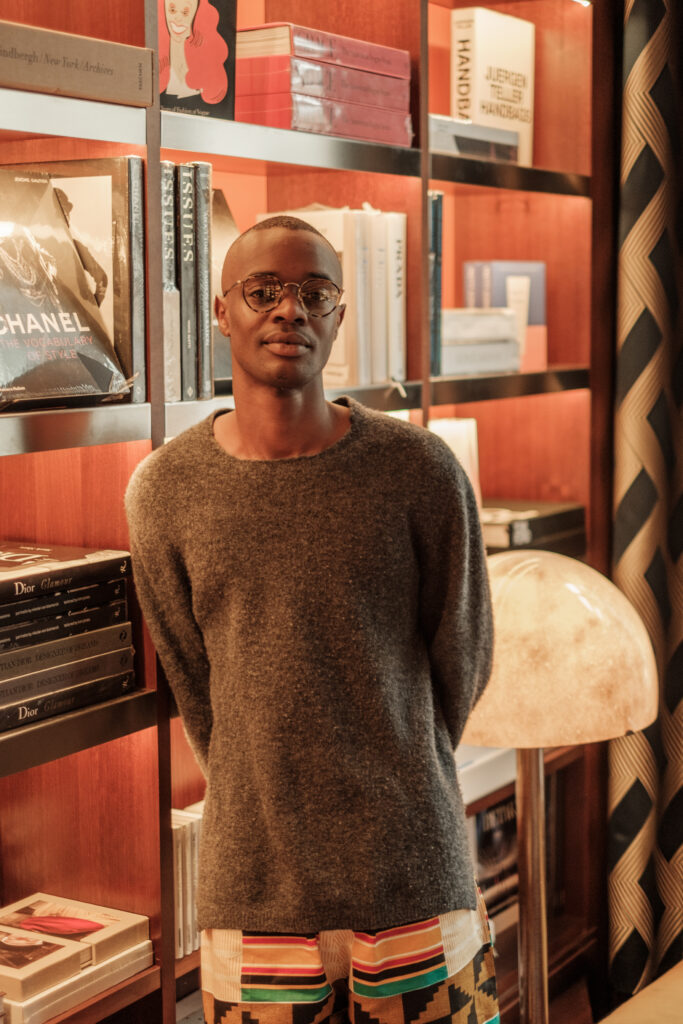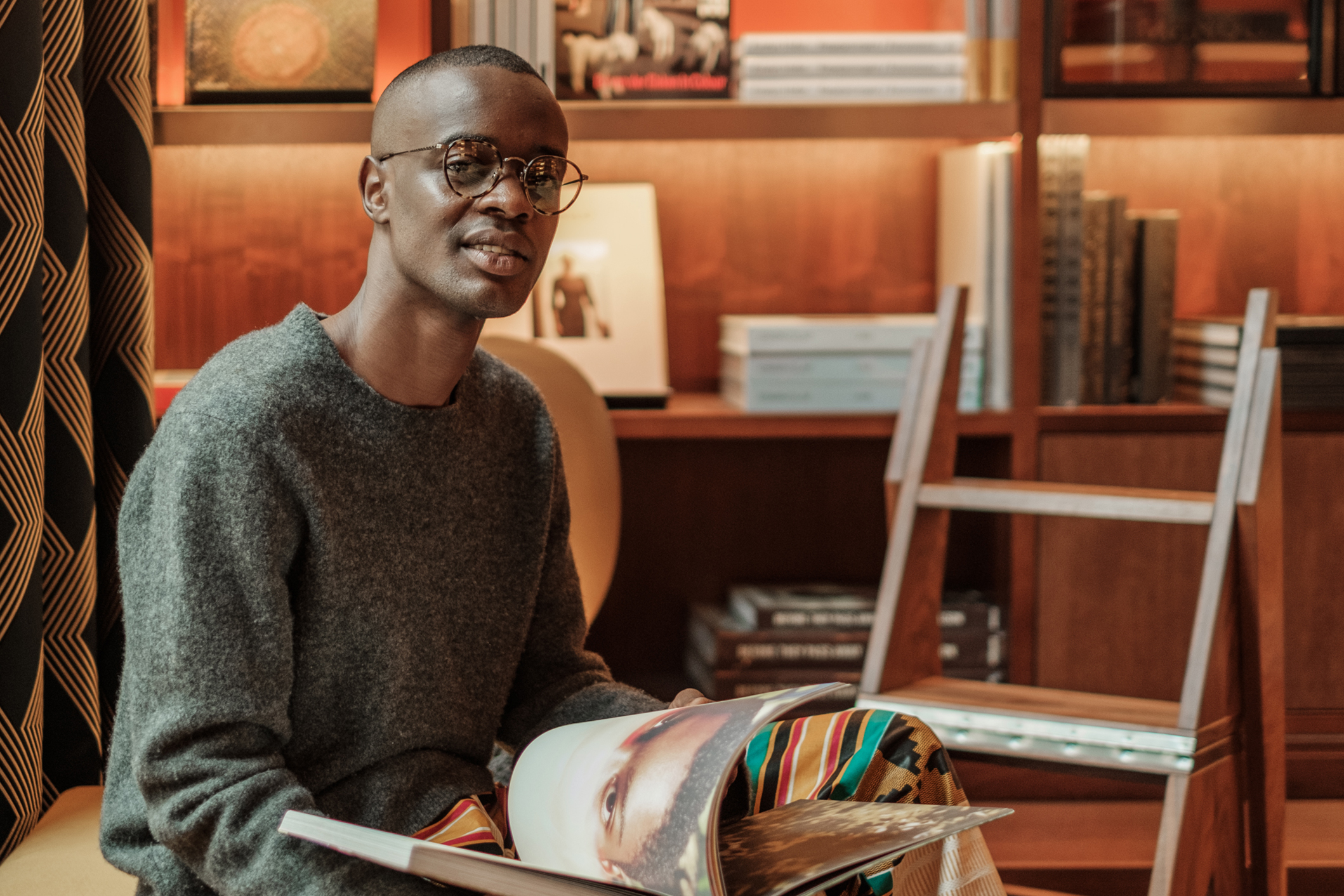We sat down with publisher Gunifort Uwambaga to talk about taking a second look at what’s on our bookshelves and figuring out where our blind spots are.
Gunifort Uwambaga is a publisher and co-owner of Amsterdam-based independent book store & publishing house Mendo Books. He arrived in Amsterdam as a child refugee from Rwanda and is now recognized as one of the only Black book publishers in The Netherlands.
Where did your relationship with books begin?
I’m from Rwanda originally. I came to the Netherlands, to Europe, as a refugee, and you just have this practical limitation when it comes to books in those settings. They’re heavy. Even the most diehard book-lover does not flee with a book bag filled with heavy editions, right?
So my love for books started when I arrived in the Netherlands, you know, going to the library was the main activity that I used to do with my mom and little brother. I didn’t like playing outside, I’m still not the most athletically gifted person [laughs], but I enjoyed reading in my bedroom.
There’s magic in this portal you can use to escape to different realities, or uncover worlds that you’ve never heard of. Having writers narrate that to you, or inform you with their knowledge, like they’re your friend, you know, or somebody that cares, I think that has always been the foundation of my love for and relationship with books. Before I knew it, my new self was born; ‘Mr. Bookmaker’.
As people looked at their bookshelves this summer, many saw for the first time how few Black voices were sitting on them. We saw calls to ‘decolonize your book-shelf’ gain popularity. Can you share what that phrase means to you?
I think with the phase we’re in at the moment, it’s not about being overly critical of yourself in terms of ‘why does my bookshelf look like this?’. One of the things about colonialism is that it’s institutional, it’s a little bit bigger than yourself.
“BLM showed us that the Western world has a big blind spot when it comes to the Black experience.”
It’s actually normal that you’re not aware, that you have blind spots, because that’s how the system is set up. And that’s what hopefully all of us are trying to correct. So, don’t waste your energy on the self-criticism of, ‘Why aren’t my spending habits, my diet, my bookshelf decolonized?’. We’ve been colonized. And we’re all learning, even if some of us are figuring it out a bit earlier than others.
So yes, decolonize your bookshelves. If you purchase two or three books about the Black experience, about institutional racism, man, whether you read them or not, I know it advanced you as a human. Next time, buy one from a female author, or an LGBTQ+ author, or any other marginalized voice. Even if you don’t read it, you have supported somebody that’s marginalized. And if you read it, it will increase your understanding of how others experience this world we all share.
BLM showed us that the western world has a big blind spot when it comes to the Black experience. But now, let’s not wait for something tragic to happen to address all of our other blind spots, as it relates to other marginalized humans. Let’s proactively start checking ourselves. I think everybody, whether as a company, a creative or as a human, should be asking ‘What are my blind spots?’ And then do something positive towards whatever blind spot was identified by posing that question. Because there is no activism without the word active.
“Purchase books about the Black experience... it will increase your understanding of how others experience this world we all share.”
This year, we saw almost every brand try to become an activist. Many of them did so with temporary statements on their social channels. You work with brands on their books, where a statement is permanent. Did you see as many messages of activism there?
You saw this with a lot of companies after BLM. Many companies felt ‘statements needed to be made’. However, most brands used the same medium [social media] as the platform to communicate about BLM. In those statements, you could really see the value of real estate.
Nowadays, and you know from your industry [advertising] if you’re an online publisher like Vogue, you could put a statement out online, but who says that that page has even been displayed to all the visitors of vogue.nl? It could even just be targeted to a specific demographic. To make a statement on your Instagram, which you can delete after, or even on your website, is less skin in the game than if you would publish that statement in Vogue’s book.

Gunifort Uwambaga, photographed by Thibault De Schepper.
And I know that I would propose ‘Hey brand, let’s add your BLM statement to your book. Or lets add a piece of text that touches on how your brand has benefited from Black culture’ — this would not be an easy ask. This hypothetical scenario would lead to more meetings, more convincing and explaining.
I believe that has to do with the value we give that real-estate (book vs. social media content) and the subsequent sunken costs it takes to make a statement truly permanent. And that has to do with the value we give that real estate, the sunken costs it takes to make that statement permanent.
“I think everybody should be asking ‘what are my blind spots?’ ”
In the wake of such a destabilizing year, has the role of books become stronger in helping us to make sense of the world?
I think we can honestly say that 2020 was one of the most challenging, crazy, dramatic, tragic, whatever- adjective-you-want-to-use, years. I think a whole lot of people found themselves in the situation I was in 20 years ago. Your life is turned upside-down on its head. The lives of people around you are in turmoil, and no one has a clear idea what the future will bring.
So yeah, you better find good resources and inform yourself. Level up by consuming some content that can help get you inspired and make sense of this new reality. For me, it wasn’t a big surprise, actually, that there was this huge run towards books after what’s happened this year.
You can follow Gunifort on Instagram at @gunifort and the publishing company he co-owns at @mendobooks.
Download the full report here.


No Comments.